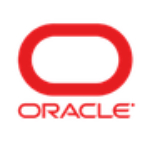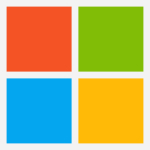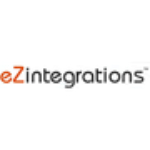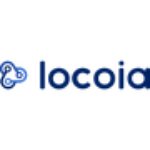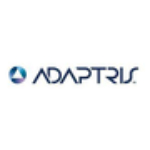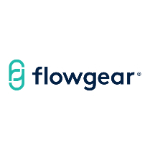TechnologyCounter provides genuine, unbiased real user reviews to help buyers make informed decisions. We may earn a referral fee when you purchase through our links, at no extra cost to you.
List of 15 Best iPaaS Software
Showing 1 - 15 of 16 productsOracle SOA (Service-Oriented Architecture) is a software designed to integrate different applications and systems, providing a seamless is a flow of information. With its advanced capabilities, organizations can streamline their operations, reduce co...Read Oracle SOA Reviews
Azure Logic Apps is a platform that simplifies the integration and automation of business processes. With its intuitive visual interface and extensive collection of connectors, Logic Apps empowers organizations to easily connect and streamline workfl...Read Azure Logic Apps Reviews
Appmixeris a ultimate solution for seamless app integration. With its innovative platform, Appmixer allows businesses to easily combine multiple applications and streamline their processes. Say goodbye to manual data transfer and hello to efficiency...Read Appmixer Reviews
ActRecipe - your ultimate solution for efficient and organized recipe management. With its user-friendly interface features, ActRecipe simplifies the way you store, search, and share your favorite recipes. Say goodbye to cluttered recipe books and he...Read ActRecipe Reviews
eZintegrations the all-in-one solution for streamlining your business processes and increasing efficiency. With a user-friendly interface and seamless integration capabilities, eZintegrations allows you to effortlessly manage all of your business nee...Read eZintegrations Reviews
SureTriggers is a solution for businesses looking to enhance their marketing efforts. With its powerful automation and tracking capabilities, SureTriggers helps businesses of all sizes reach their target audience and drive conversions. Say goodbye to...Read SureTriggers Reviews
Locoia is not your average software. With its innovative approach to data analysis and decision-making, Locoia stands out as a game-changer in the tech world. Seamlessly integrating advanced algorithms and user-friendly interface, Locoia helps busine...Read Locoia Reviews
Hotglue is a software that allows you to easily create, collaborate and share digital projects in real-time. With its user-friendly interface features, hotglue is a game-changer for designers, artists, and creators, providing endless possibilities to...Read hotglue Reviews
Trimble Data Xchange, the innovative data management solution that streamlines the collection, sharing, and analysis of data. With its user-friendly platform features, Data Xchange provides real-time insights and enables seamless collaboration among...Read Trimble Data Xchange Reviews
Workato is a and user-friendly integration platform that connects various apps and automates workflows to optimize work efficiency. It offers a seamless experience by eliminating manual tasks and streamlining processes. With Workato, businesses can i...Read Workato Reviews
Utilihive is a latest software solution designed to streamline and simplify your daily tasks. From data management to workflow optimization, Utilihive revolutionizes the way industries operate by providing a user-friendly platform for increased effic...Read Utilihive Reviews
HubBroker IPaaS, the innovative software that streamlines your business processes and eliminates the need for manual data entry. With its seamless integration capabilities, HubBroker IPaaS allows for efficient and automated workflows, boosting produc...Read HubBroker IPaaS Reviews
BMC Helix iPaaS is a and innovative platform designed to streamline and enhance your companys integration process. With a user-friendly interface and robust features, it simplifies the complexities of data integration, allowing you to optimize your b...Read BMC Helix iPaaS Reviews
Interlok, the innovative software designed to streamline your business processes. With its user-friendly interface and powerful features, Interlok empowers companies of all sizes to increase efficiency and productivity. Say goodbye to complicated sys...Read Interlok Reviews
Flowgear is a software that streamlines business processes and automates workflows effortlessly. With its user-friendly interface integration capabilities, Flowgear simplifies complex tasks and helps businesses achieve greater efficiency. Say goodbye...Read Flowgear Reviews
- What Is IPaaS Software?
- Top Reasons Why Businesses Need IPaaS Software?
- What Are the Top Key Features of IPaaS Software?
- What Are the Top Benefits of IPaaS Software?
- What Are the Steps to Choose the Right IPaaS Software?
- What Are the Types of IPaaS Software for Different Industries?
- What Are the Technology Trends for Best IPaaS Software?
- What Are the Deployment Options for IPaaS Software?
What Is IPaaS Software?
IPaaS, also known as Integration Platform as a Service, is a cloud-based computing platform that has been specifically developed to streamline the process of integrating various services, software applications, and databases.
The platform offers a comprehensive range of tools that facilitate the rapid and effective development, deployment, and management of business applications and services for enterprises. The best IPaaS software facilitates the interconnection of diverse systems, databases, and applications, which were historically arduous and time-intensive to merge.
In this manner, enterprises have the ability to construct and oversee intricate integrations within a significantly reduced timeframe and expenditure. In addition to their core features, IPaaS solutions offer supplementary functionality including message routing, data mapping, adaptation, and transformation capabilities.
One significant advantage of utilizing IPaaS is its capacity for scalability, enabling enterprises to accommodate their integration requirements as their firm experiences growth. This implies that enterprises have the ability to rapidly and effortlessly expand their integration methods in order to support intricate integrations across various systems and applications.
Furthermore, IPaaS systems have the potential to offer significant insights, analytics, and data oversight capabilities. The utilization of the best IPaaS software enables enterprises to effectively utilize their current applications and technologies, harnessing their capabilities to develop digital business solutions that are capable of scaling to meet increasing demands.
IPaaS enables businesses to efficiently and effectively oversee the complete integration process, encompassing coding, deployment, and allowing them to concentrate on their core competencies.
Top Reasons Why Businesses Need IPaaS Software?
1. Streamlined data integration: The best IPAAS software facilitates an efficient procedure for the management and integration of data from various sources into a unified repository.
2. Real-time analytics: The provision of real-time analytics facilitates expedited access to valuable insights derived from data.
3. Automation of business processes: IPAAS software facilitates the automation of workflows and processes in their entirety, hence enhancing operational efficiency for enterprises.
4. Cost efficiencies: The utilization of top IPAAS software yields cost reductions in labor expenses related to manual integration, data cleansing, and data processing.
5. Scalability: The solution provides the capacity to scale a business's data requirements without necessitating extra infrastructure and resources.
6. Flexibility: The solution provides the capacity to scale a business's data requirements without necessitating extra infrastructure and resources.
7. Improved customer experience: IPAAS solutions enable clients to efficiently and securely access tailored data, hence resulting in enhanced levels of customer satisfaction and engagement.
8. Cloud-ready: IPAAS systems can seamlessly integrate with cloud infrastructures, rendering them highly suitable for enterprises that function within hybrid or multi-cloud settings.
9. Improved data security: The IPAAS tools offer robust security protocols to safeguard critical data against unauthorized intrusion.
10. Quality of data management: The utilization of IPAAS enhances the quality of data by employing the ETL (extract, transform, load) methodology for the integration of data.
11. Reduced processing time: IPAAS solutions effectively minimize the duration dedicated to manual data integration, hence expediting the process of data retrieval and analysis.
12. Integration of multiple processes: The IPAAS platform consolidates multiple intricate operations, including data integration, reporting, and analytics, inside a unified framework.
13. Monitoring of processes: The use of IPAAS enables the real-time monitoring of operations and facilitates necessary adjustments without requiring personal intervention.
14. Access to data from any source: The IPAAS platform facilitates convenient data retrieval from many sources, encompassing legacy systems.
15. Auditability: IPAAS solutions play a crucial role in ensuring the accuracy and integrity of data by offering a comprehensive record of all modifications and revisions made to the data.
What Are the Top Key Features of IPaaS Software?
The top key features of iPaaS software include:
1. Automation: The iPaaS tools provide a range of automation tools that facilitate the creation of scripts and workflows, enabling the seamless integration of diverse applications, the automation of various processes, and the ability to respond to triggers.
2. Security: iPaaS software solutions offer robust security procedures that enable authorized users and apps to securely access the system. The security measures encompass authentication and authorisation mechanisms, data encryption protocols, as well as usage monitoring systems.
3. Scalability: The majority of top iPaaS software solutions have adaptable schedulers that facilitate the management of fluctuating traffic volumes, enabling seamless scalability to address unanticipated demands.
4. Data Integration: The utilization of iPaaS software facilitates the consolidation and integration of data from diverse origins into a unified dataset. The utilization of this technology facilitates the efficient management and analysis of real-time data, resulting in the automatic generation of valuable insights.
5. Cloud Connectivity: The primary purpose of best IPaaS software is to facilitate the seamless integration of various cloud services and applications. This feature facilitates seamless data integration across many platforms and sources.
6. Platform Agnostic: Integration Platform as Service solutions provide platform-agnostic capabilities, enabling the seamless integration of diverse databases, operating systems, applications, and tools, irrespective of their respective vendors or platforms.
7. Analytics: Integration Platform as a Service solutions provide the capability to effectively monitor and evaluate the performance of various systems and applications through the utilization of real-time analytics.
8. Easy Deployment: Integration Platform as a Service (iPaaS) solutions are specifically engineered to be swiftly implemented, ensuring minimal disruption to operational processes.
What Are the Top Benefits of IPaaS Software?
1. Reduced Costs: IPaaS software offers cost savings in terms of infrastructure expenses as it eliminates the need for supplementary hardware and software for construction and upkeep.
2. Increased Agility: IPaaS solutions enable customers to efficiently deploy apps and modify features without the burdensome requirements of setup and maintenance.
3. High Availability: Since The delivery of the IPaaS tools list is facilitated by a cloud provider, ensuring the provision of guaranteed availability and uptime.
4. Security: IPaaS solutions offer a secure environment for the hosting of vital corporate applications and data.
5. Scalability: IPaaS systems are specifically engineered to provide the dynamic scaling of resources to effectively adapt to evolving business requirements and fluctuations in resource demands.
6. Ease of Use: IPaaS tools are characterized by their user-friendly nature and the minimal level of experience required for their deployment and management.
7. Automation: IPaaS systems offer the capability to automate the deployment and management of intricate workflows for applications.
8. Integration: The best IPaaS software provides a streamlined integration of various applications, databases, and resources.
9. Data Synchronization: IPaaS solutions can offer automated data synchronization among systems that are distinct and separate from each other.
10. Management: IPaaS solutions offer a range of user-friendly tools that facilitate the management of application deployments, performance optimization, and security measures.
What Are the Steps to Choose the Right IPaaS Software?
1. Identify Your Goals: Prior to the selection of an iPaaS solution, it is crucial to ascertain the objectives that one aims to achieve through the integration of various apps.
One must take into consideration the nature of the data that requires synchronization, the level of complexity involved in the integration process, and the duration required for the integration to be completed.
2. Research Vendor Options: After establishing your objectives, it is advisable to conduct research on different iPaaS vendors in order to evaluate the extent to which their solutions align with your requirements.
It is imperative to evaluate the security policies, scalability, functionality, and pricing offered by the provider. One instance is the AWS Integration Hub, which offers a cloud-based application programming interface (API) enabling clients to conveniently establish connections among various apps.
3. Narrow Your Options: After identifying many possible iPaaS solutions, it is advisable to refine your choices by doing a comparative analysis of their features and costs. The evaluation should encompass the customer service, support, and developer resources provided by the vendor.
For example, AWS provides comprehensive documentation and tutorials that aid developers in quickly familiarizing themselves with the platform.
4. Make a Decision: After the selection of an iPaaS solution, it is necessary to reach a conclusion. Perform a comprehensive cost-benefit analysis, taking into account many criteria including scalability, vendor reputation, and support services.
It is imperative to consider customer input before making your decision. For instance, AWS offers a robust platform for collecting client feedback.
5. Test and Monitor: After implementing an IPaaS tools list, it is imperative to conduct comprehensive testing and closely monitor its performance. This will facilitate prompt identification of any potential concerns.
It is imperative to conduct regular analysis of the data acquired from the integration process in order to ascertain its alignment with the predetermined objectives.
What Are the Types of IPaaS Software for Different Industries?
There exist four primary categories of iPaaS (Integration Platform as a Service) applications that cater to diverse businesses.
1. Business-to-Business Integration: The best IPaaS software under consideration is specifically engineered to facilitate the integration and administration of intricate processes on a big scale. These operations encompass bidirectional interconnections with both customers and suppliers.
2. Cloud Migration & Management: The iPaaS solutions are specifically engineered to facilitate the migration and administration of cloud-based applications for organizations. This includes the management of application environments across various cloud deployment models, including private, hybrid, and public clouds.
3. Data Integration & Visualization: The iPaaS solutions are specifically engineered to facilitate the integration, storage, and visualization of data from many origins, hence empowering organizations to make informed decisions based on data.
4. Application & Infrastructure Integration: The iPaaS solutions are specifically developed to facilitate the integration of on-premises applications and infrastructure of enterprises with cloud-based services, hence enabling seamless cooperation across different platforms.
What Are the Technology Trends for Best IPaaS Software?
The technology trends for the best iPaaS software are as follows:
1. Increased Adoption of Cloud-based Solutions: Cloud-based solutions are being increasingly embraced by businesses of various scales due to their notable attributes such as scalability, reliability, and cost-effectiveness.
The optimal iPaaS software facilitates the rapid and safe integration of cloud-based apps, including but not limited to Salesforce, Amazon Web Services, Microsoft Dynamics 365, and ServiceNow, for enterprises.
2. Automation: The significance of automating various tasks is growing in the business sector, and the utilization of the best Integration Platform as a Service (iPaaS) software enables automated task management, process orchestration, and real-time data synchronization.
This enables firms to streamline operational procedures and mitigate the occurrence of human errors.
3. Big Data Integration: Numerous top-rated iPaaS solutions are widely regarded as highly effective tools for integrating Big Data, particularly in the context of seamlessly migrating and transferring extensive datasets across diverse databases and applications.
4. Security: Ensuring security is of utmost importance for businesses as it serves to safeguard private data from unauthorized access. The optimal best IPaaS software integrates a wide range of security features, encompassing data encryption and identity management, in order to establish a secure mode of communication between various apps.
5. Low Code Automation: Numerous leading iPaaS solutions offer consumers the capability to construct, evaluate, and implement apps without the necessity for intricate coding. This technology offers users a robust instrument for automating processes, hence facilitating the enhancement of process efficiency.
What Are the Deployment Options for IPaaS Software?
The selection of deployment alternatives for IPaaS software is contingent upon the specific application and user needs. In the realm of information technology, the prevailing alternatives often encompass cloud-based, on-premises, and hybrid solutions.
1. Cloud-based solutions are commonly regarded as the most convenient to implement, as they necessitate less configuration and offer greater flexibility for expansion or enhancement. This deployment approach has particular appeal for enterprises lacking expertise in server management or the necessary resources for hosting on-premises.
2. On-premises solutions pertain to the practice of hosting Integration Platform as a Service (IPaaS) software within the user's physical infrastructure. Typically, more preparation and upkeep are necessary since the user assumes the responsibility of procuring the necessary hardware, software, and networks for the operation of the program.
In certain cases, businesses with the requisite resources at their disposal may find it more economically advantageous.
3. Hybrid solutions encompass the integration of cloud-based and on-premises IPaaS deployment alternatives, so affording users the advantages inherent in both approaches. One possible approach is for the user to deploy the core software within their premises while leveraging cloud-based services to augment and enhance the overall capability.
This feature provides users with the ability to personalize their deployment to align with their unique requirements and financial constraints.
